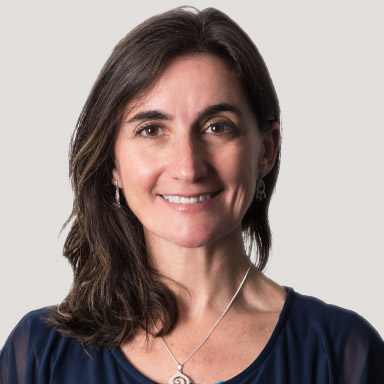Understanding the science behind your baby’s speech milestones will help you guide them as they begin to learn how to talk.
“Reception always precedes expression – in other words, we listen and understand before we can speak,” says Dr Natalie Buttress, a speech and hearing expert who consults at Mediclinic Durbanville. “We can’t say anything until we’ve first learned by listening and receiving information."
And this listening and learning begins even before birth. “The auditory system is pretty much complete after the first trimester of pregnancy," says Dr Buttress. Your unborn baby is already linking sounds to feelings – like your voice to comfort and certain rhythms to a sense of safety.
Even baby’s piercing first cry serves a purpose. “Your baby crying is language because they’re using a vocal tool to get their needs met. Language is a tool to manipulate the environment.”
Hearing is the gateway to language
Because hearing is so important for language development, it’s crucial to protect and check your child’s hearing. Dr. Buttress says hearing tests can start just 24 hours after birth. The test is quick, painless, and non-invasive. If there are any concerns, your child should be seen again around six weeks, during their first paediatric checkup, for more detailed testing. Catching any hearing problems early is important because they can affect language development.
In between hearing screenings, look out for signs like your baby frequently pulling on or rubbing their ear, or not reacting to your voice when they’re not looking at you. Your baby should be able to locate you just by hearing your voice.
Babbling as part of language development
“Babies babble as a way of playing with sound,” says Dr Buttress. “After crying and making sounds like ‘ooh’ and ‘goo’, they start to practise moving their mouth and tongue to form words.”
This natural process leads to real words: “Babbling slowly turns into actual words. That's why ‘mama’, ‘baba’, and ‘dada’ are often the first words – they start as babbling sounds that parents help shape into real words.”
Ways to encourage your baby to speak
Dr Buttress suggests these tips:
- Create communication hunger: If you meet your baby’s needs before they even try to communicate, they won’t feel the need to use their voice. Let them experience the joy of being understood after making an attempt to communicate.
- Master the complexity ladder: Speak at a level just above your child’s age. For example, if your child is one year old, use simple two-word phrases like “Want juice?” or “Where’s doggy?” This balance of simplicity and challenge helps build their language skills.
- Turn frustration into breakthroughs: If your baby is hungry, bring them to the kitchen and ask, “Biscuit or juice?” If they say “juice,” respond with, “Good, juice, juice.” This method helps reduce communication anxiety and encourages learning.
- Celebrate imperfection: Don’t worry if your child’s speech isn’t perfect. If they say “oo” for juice, that’s a good start. Repeat the word correctly a few times to reinforce it.
- Books beat screens: Reading just one book a day with them can make a big difference in their language development. Spending even 10 minutes a day helps lay a strong foundation.
- Face-to-face matters most: Get down to your child’s level and make sure they can see your face and hear your voice clearly. Try to reduce other noises around you when you communicate.
Remember that language development follows a natural progression. Celebrate every new sound, word, and sentence your child says.
Further publications on the topic
Doctors 1


